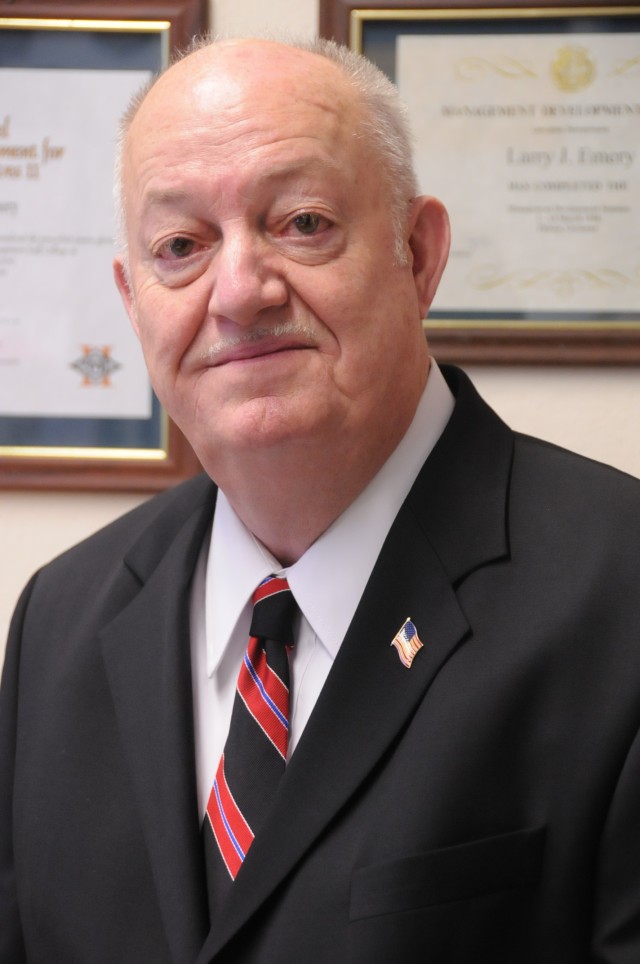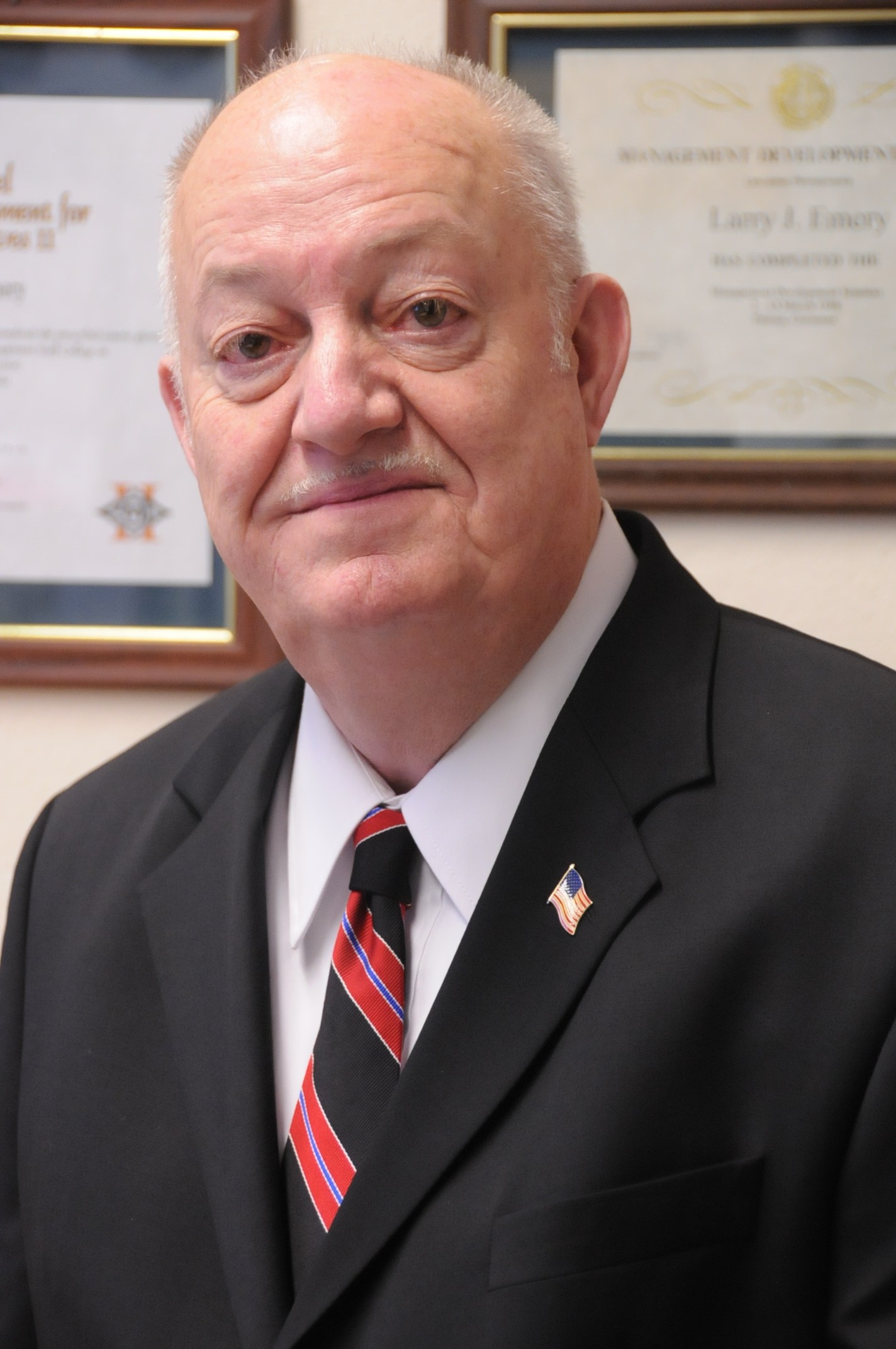HOHENFELS, Germany - When Larry J. Emery joined the Army in 1959, gasoline cost 25 cents a gallon. Fifty years later, he is still proudly serving his country.
"I joined the army at 17," said Emery. "I needed to belong to something that was bigger than me, and the Army is bigger than all of us."
Emery served for 30 years in virtually every capacity, from Private to Command Sergeant Major.
"I've enjoyed every minute of my 30 years in the Army," Emery said.
Had he made different choices, he might well have ended up as a factory worker like some of his relatives.
"Every 26 seconds they pull a handle down, drill a hole, like little robots. I'm glad I never had to do that. I've had the opportunity to stay in the thick of things."
He certainly has remained in the thick of things. For the past 20 years, he has worked as a Department of the Army Civilian in the Instrumentation Training Analysis Computer Simulations and Support (ITACSS) team at the Joint Multinational Readiness center, in Hohenfels. Currently, he is the Supervisor of Maneuver TAF Team #1, ITACSS.
Emery's team has traveled all over Germany and beyond supporting training missions. He said most of his crew are ex-Soldiers or retirees and probably love the Army as much as he does.
"It's probably as close to being still in uniform as you can get without having to get out and get muddy and cold," he said, laughing.
"All of us are very serious about what we do," he said, explaining that during a rotation there's no such thing as an eight-hour day. "We work till everything is completed, and we feel like we've done what we needed to do for that day."
"You get a real sense of doing something worthwhile," said Emery. "These kids are going on real missions. Maybe something that we show them, or give them, maybe saves a life. I think that's what keeps me going. It'd be hard to work here and work the hours we work if you didn't think that way."
Hard work is nothing new to Emery. His parents split up when he was 13, and his mother struggled to make ends meet cleaning houses. He borrowed money from his grandfather to buy a lawn mower and started cutting grass to buy clothes for school, but not before he'd repaid the money he borrowed.
"I never was handed anything," said Emery. "If you want something, you had to go get it, and you had to work for it. You wait for someone to give you something, you're going to be waiting a long time."
This strong work ethic served him well throughout his career, in some cases leading to his advancement over others who were senior to him.
"When your senior leaders pull you from down here, and place you over these guys, that's a hell of a feeling," he said. "And a hell of a responsibility."
But responsibility has never scared Emery, who has always been quick to raise his hand when a task needed done. This can-do attitude undoubtedly helped when Emery was assigned as first sergeant for Alpha Battery, 3rd Battalion, 21st Field Artillery Regiment, in Kitzingen, Germany.
"First sergeant was the greatest position I ever had," said Emery. As the United States prepared for the Vietnam War, Soldiers were being pulled and reassigned at an unprecedented rate.
"First time I was a first sergeant, I was an E-6 believe it or not. I looked around, and I'm the ranking enlisted guy in the company!
"That's a scary position," he said. "You can screw up some stuff big time. When you say something, you've got 100-200 people taking that as gospel. So you've got to be right!"
Helping others is what made first sergeant such a rewarding experience for Emery.
Getting things done, and getting them done well, has always been important to Emery.
"My dad taught me, anything you do is worth doing to the best of your ability," said Emery. "And I tell my guys, all I can expect for you to do is give me 100 percent every day, and try your best."
Emery gets frustrated when others don't share this commitment.
"I see guys on the PT test who will do the bare minimum; they'll do 30 pushups and then stop. And they got a minute left! Why would you cut yourself short like that' You don't even know what you're capable of."
Emery feels that it is the duty of good bosses and supervisors to get everything they can out of their men, and he believes in leading by example.
"I'm the oldest guy on the team," he said, "and when we do the rotations, I do the same thing they do. I'm the first guy in there, and I'm the last guy to leave."
As part of the same ITACSS team for 20 years, Emery is quick to give credit to his men.
"We're like family," he said. "Hands down I got the best team, and it's not because of me, it's because of the people."
At 68, Emery is starting to think about retiring. His wife of 45 years, Barbara, is originally from Darmstadt, and the couple plans to remain in Germany after his retirement.
"I probably have two more years," said Emery. "I don't know what I'll do next. But I'll have to find something. I'm still a ball of energy. I feel my age some, now. I get up, and I crank and crunch, but I still want to get up because I still want to go to work."


Social Sharing